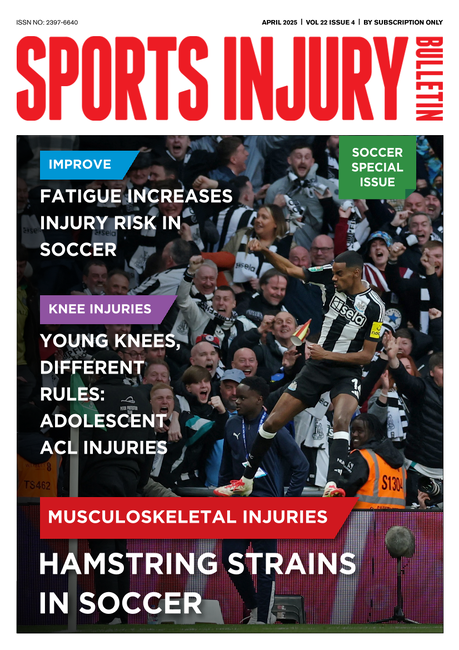The starting block: low back pain education
Low back pain affects athletes and non-athletes. Once a comprehensive assessment is complete, clinicians must prioritize education in their management plan. Edel O’Hagan provides guidance on nurturing a patient-centered relationship and supporting people to self-manage their low back pain.
Low back pain is a common and complex problem. Most people will experience low back pain at some point in their lives. Although the majority recover within six weeks, up to 40% will continue to report pain one year later. Low back pain can be highly distressing to the extent that suicide ideation or attempts are twice as likely compared to those without pain. Face-to-face interviews and focus groups report that the impact of chronic low back pain could be pervasive. Participants report life-changing effects, including damage to relationships, changing social roles and identity, and concerns about the future.
Despite this complex presentation, the first-line care for people with low back pain is straightforward. Regardless of the duration, clinicians should provide education on the benign nature of low back pain, reassurance about the absence of a serious medical condition, and advice to remain active. Unfortunately, there is a gap between the recommended care and the care usually provided. Researchers at the Centre for Pain IMPACT set out to close this gap by providing clinicians with evidence-based insights, such as education, reassurance, and patient advice (see figure 1)(1).
You need to be logged in to continue reading.
Please register for limited access or take a 30-day risk-free trial of Sports Injury Bulletin to experience the full benefits of a subscription. TAKE A RISK-FREE TRIAL
TAKE A RISK-FREE TRIAL
Newsletter Sign Up
Subscriber Testimonials
Dr. Alexandra Fandetti-Robin, Back & Body Chiropractic
Elspeth Cowell MSCh DpodM SRCh HCPC reg
William Hunter, Nuffield Health
Newsletter Sign Up
Coaches Testimonials
Dr. Alexandra Fandetti-Robin, Back & Body Chiropractic
Elspeth Cowell MSCh DpodM SRCh HCPC reg
William Hunter, Nuffield Health
Be at the leading edge of sports injury management
Our international team of qualified experts (see above) spend hours poring over scores of technical journals and medical papers that even the most interested professionals don't have time to read.
For 17 years, we've helped hard-working physiotherapists and sports professionals like you, overwhelmed by the vast amount of new research, bring science to their treatment. Sports Injury Bulletin is the ideal resource for practitioners too busy to cull through all the monthly journals to find meaningful and applicable studies.
*includes 3 coaching manuals
Get Inspired
All the latest techniques and approaches
Sports Injury Bulletin brings together a worldwide panel of experts – including physiotherapists, doctors, researchers and sports scientists. Together we deliver everything you need to help your clients avoid – or recover as quickly as possible from – injuries.
We strip away the scientific jargon and deliver you easy-to-follow training exercises, nutrition tips, psychological strategies and recovery programmes and exercises in plain English.





